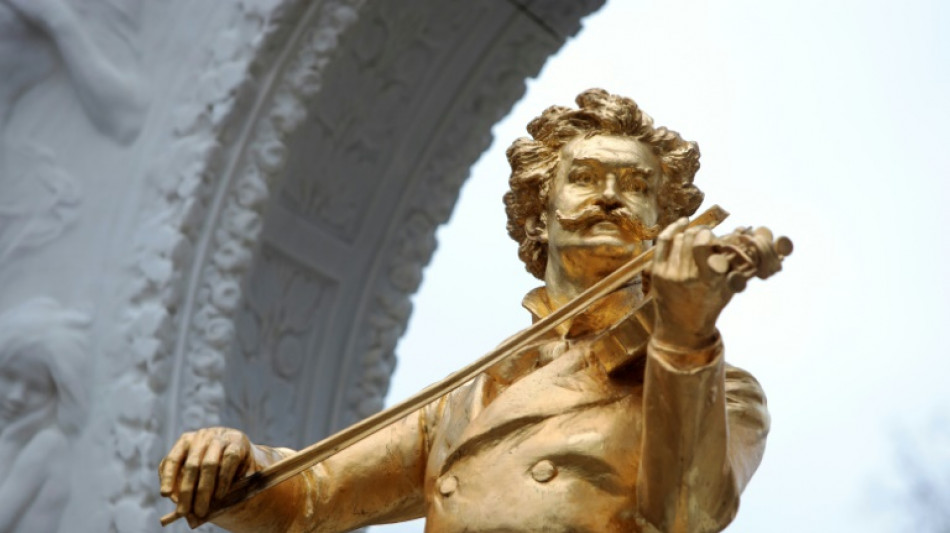
-
 Trump reinstates commercial fishing in protected Atlantic waters
Trump reinstates commercial fishing in protected Atlantic waters
-
Man Utd can't rush manager choice: Carrick

-
 Leeds boost survival bid with win over relegation rivals Forest
Leeds boost survival bid with win over relegation rivals Forest
-
Stars, Clydesdales and an AI beef jostle for Super Bowl ad glory

-
 Dow surges above 50,000 for first time as US stocks regain mojo
Dow surges above 50,000 for first time as US stocks regain mojo
-
Freeski star Gu says injuries hit confidence as she targets Olympic treble

-
 UK police search properties in Mandelson probe
UK police search properties in Mandelson probe
-
Bompastor extends contract as Chelsea Women's boss despite slump

-
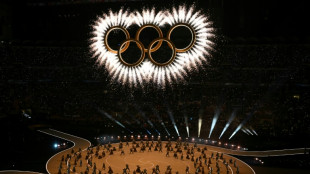 Milan-Cortina Winter Olympics open with glittering ceremony
Milan-Cortina Winter Olympics open with glittering ceremony
-
A French yoga teacher's 'hell' in a Venezuelan jail
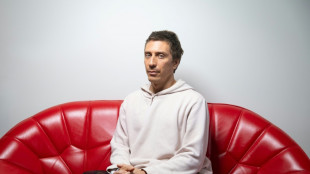
-
 England's Underhill taking nothing for granted against Wales
England's Underhill taking nothing for granted against Wales
-
Fans cheer for absent Ronaldo as Saudi row deepens

-
 Violence-ridden Haiti in limbo as transitional council wraps up
Violence-ridden Haiti in limbo as transitional council wraps up
-
Hundreds protest in Milan ahead of Winter Olympics

-
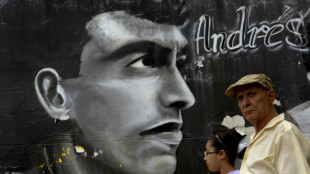 Suspect in murder of Colombian footballer Escobar killed in Mexico
Suspect in murder of Colombian footballer Escobar killed in Mexico
-
Colombia's Rodriguez signs with MLS Minnesota United

-
 Wainwright says England game still 'huge occasion' despite Welsh woes
Wainwright says England game still 'huge occasion' despite Welsh woes
-
WADA shrugs off USA withholding dues

-
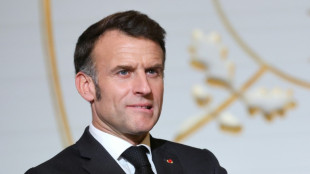 France detects Russia-linked Epstein smear attempt against Macron
France detects Russia-linked Epstein smear attempt against Macron
-
Winter Olympics to open with star-studded ceremony
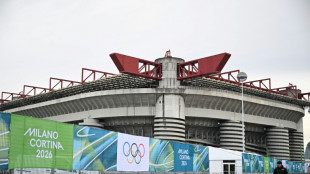
-
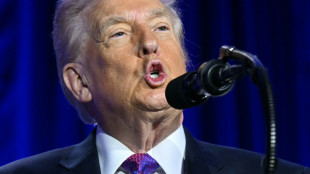 Trump posts, then deletes, racist clip of Obamas as monkeys
Trump posts, then deletes, racist clip of Obamas as monkeys
-
Danone expands recall of infant formula batches in Europe

-
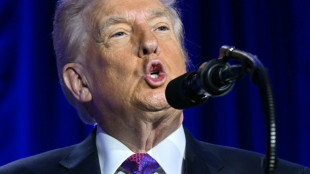 Trump deletes racist video post of Obamas as monkeys
Trump deletes racist video post of Obamas as monkeys
-
Colombia's Rodriguez signs with MLS side Minnesota United

-
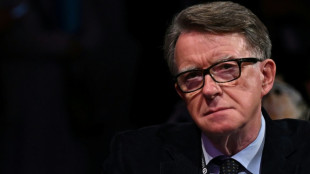 UK police probing Mandelson after Epstein revelations search properties
UK police probing Mandelson after Epstein revelations search properties
-
Russian drone hits Ukrainian animal shelter

-
 US says new nuclear deal should include China, accuses Beijing of secret tests
US says new nuclear deal should include China, accuses Beijing of secret tests
-
French cycling hope Seixas dreaming of Tour de France debut

-
 France detects Russia-linked Epstein smear attempt against Macron: govt source
France detects Russia-linked Epstein smear attempt against Macron: govt source
-
EU nations back chemical recycling for plastic bottles

-
 Terror at Friday prayers: witnesses describe blast rocking Islamabad mosque
Terror at Friday prayers: witnesses describe blast rocking Islamabad mosque
-
Iran expects more US talks after 'positive atmosphere' in Oman

-
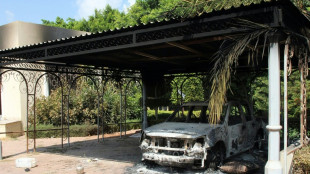 US says 'key participant' in 2012 attack on Benghazi mission arrested
US says 'key participant' in 2012 attack on Benghazi mission arrested
-
Why bitcoin is losing its luster after stratospheric rise

-
 Arteta apologises to Rosenior after disrespect row
Arteta apologises to Rosenior after disrespect row
-
Terror at Friday prayers: witness describes 'extremely powerful' blast in Islamabad

-
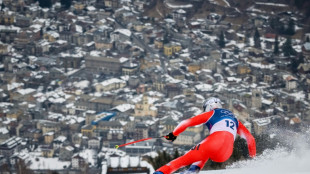 Winter Olympics men's downhill: Three things to watch
Winter Olympics men's downhill: Three things to watch
-
Ice dancers Chock and Bates shine as US lead Japan in team event

-
 Stellantis takes massive hit on 'overestimation' of EV demand
Stellantis takes massive hit on 'overestimation' of EV demand
-
Stocks rebound though tech stocks still suffer

-
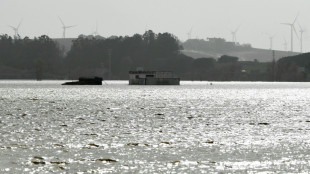 Spanish PM urges caution as fresh rain heads for flood zone
Spanish PM urges caution as fresh rain heads for flood zone
-
Iran says to hold more talks with US despite Trump military threats

-
 Russia accuses Kyiv of gun attack on army general in Moscow
Russia accuses Kyiv of gun attack on army general in Moscow
-
Cambodia reveals damage to UNESCO-listed temple after Thailand clashes

-
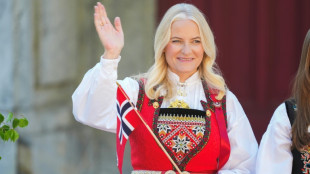 Norway crown princess 'deeply regrets' Epstein friendship
Norway crown princess 'deeply regrets' Epstein friendship
-
Italy set for Winter Olympics opening ceremony as Vonn passes test
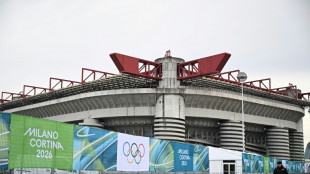
-
 England's Jacks says players back under-fire skipper Brook '100 percent'
England's Jacks says players back under-fire skipper Brook '100 percent'
-
Carrick relishing Frank reunion as Man Utd host Spurs

-
 Farrell keeps the faith in Irish still being at rugby's top table
Farrell keeps the faith in Irish still being at rugby's top table
-
Meloni, Vance hail 'shared values' amid pre-Olympic protests


Austria celebrates 200 years of 'waltz king' Johann Strauss II
Even 200 years after the birth of Austria's world-famous "waltz king" Johann Strauss II -- widely revered like a modern-day pop star during his lifetime -- his music has lost none of its magic.
Best known for his rousing waltz "The Blue Danube", which became Austria's unofficial national anthem, many of his 500 dance pieces live on in Vienna's roaring ball season.
Strauss's persistent popularity lies in the catchy tunes he composed to cheer up people, his great-grand-nephew Eduard Strauss told AFP.
"He simply created music that touches everyone, regardless of their background," he said.
But his fame was rooted in much more than his hits: just like today, selling music meant marketing the star's image.
"One could say that he was actually the first pop star in the modern sense," said Strauss museum guide Clara Kaufmann.
Vienna is marking the bicentenary with special events, concerts and exhibitions, and even an Austrian Airlines aeroplane emblazoned with a portrait of Strauss and his violin.
Strauss "symbolises music for all", said British dentist Helen Foster, who visited one of Vienna's Strauss museums, adding that his appealing waltz tunes have been "popular with everyone over the ages".
- Impressive stage shows -
Strauss was born in the suburbs of Vienna in 1825 into a family of famous musicians, but despite his father being a household name, Strauss junior's success did not come easily.
Defying his father's explicit wish that he would not follow in his footsteps, he secretly took violin lessons with the support of his mother.
After his father abandoned the family for another woman, Strauss's mother Anna became a driving force behind the career of her eldest son, who kept "churning out music" to make a living.
"Unlike today, there was no insurance, no pension scheme or anything like that," Eduard Strauss told AFP.
"Life had to be earned," said the retired judge, 69.
Johann made his debut at the age of 18, becoming his father's direct rival.
Perfecting his father's simpler waltzes, he elevated them into refined concert works, with the light-hearted, energetic dance music helping many to forget about the hardships they faced in 19th-century imperial Vienna.
He put on impressive shows on stage, playing the violin with great panache and conducting the orchestra with his bow while frantically jumping up and down.
Admired for his impeccable looks, his coiffure was styled "with hair irons before every performance to make it stand up", said Kaufmann. As he aged, he dyed his hair and beard to maintain his youthful appearance.
- 'Mama's boy' -
Marketed as a womaniser, the workaholic was a completely different person off-stage, plagued by insecurities and self-doubt, his great-grand-nephew said.
"He had many phobias –- including travel phobia –- and had difficulties with women. He was a mama's boy," he said.
When his father died in 1849, the younger Strauss took over his orchestra as well as the up-scale entertainment establishments in the city.
Despite suffering a nervous breakdown due to exhaustion, he kept performing and composing at an impressive pace.
In 1866, he wrote what is arguably the world's most famous waltz, "The Blue Danube", which is featured in the prestigious Vienna New Year's concert every year.
Although Strauss despised travelling, he regularly toured across Europe, entertaining Russian nobility for more than a decade.
While initially struggling to compose operettas, he wrote several of them, including a few hits like "Die Fledermaus".
"People still dance to Strauss waltzes, but you can also hear them in concert halls, and that was his special achievement," musicologist Thomas Aigner said about the legacy of the revered composer, who died in 1899.
D.Qudsi--SF-PST


